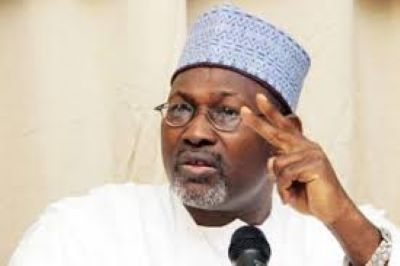Former INEC Chairman, Prof. Attahiru Jega, on Wednesday urged the Nigerian government to approach advice from the Bretton Woods institutions—particularly the International Monetary Fund (IMF) and the World Bank—with caution. Jega emphasized the importance of engaging with these institutions but warned against implementing their recommendations without a critical evaluation, as this could lead to long-term economic challenges.
Speaking at the 2024 Annual Directors’ Conference organized by the Chartered Institute of Directors of Nigeria (CIoD), themed “Good Governance as a Catalyst for Economic Recovery, Growth, and Development,” Jega also underscored the need for reform in Nigeria’s leadership recruitment process, citing that many current leaders were not adequately prepared for governance.
Jega’s comments come amidst criticism of recent economic policies in Nigeria, attributed by some to IMF advice, particularly the removal of fuel subsidies and the naira’s floating exchange rate, both of which have led to significant inflationary pressures.
However, IMF African Region Director Abebe Selassie clarified during the IMF and World Bank Annual Meetings in Washington, D.C., that these decisions were domestically driven. “The decision was a domestic one, made by President Tinubu. We have no programs in Nigeria; our role is limited to regular dialogue, as with other nations,” he explained.
At the conference, Jega urged Nigerians to focus on strengthening democratic governance rather than the “good governance” agenda promoted by institutions like the World Bank. According to him, this is the pathway to “People-oriented development processes” for Nigeria.
Jega also highlighted the need for a critical assessment of recommendations from global financial institutions: “We must not accept their advice wholesale. Otherwise, short-term gains could lead to significant medium- and long-term challenges.”
Alhaji Tijjani Borodo, President and Chairman of the CIoD, emphasized the Institute’s commitment to promoting corporate governance across Nigeria, helping directors and business leaders improve their professional capabilities in both public and private sectors. He noted that CIoD continues to build connections among top business leaders and collaborate with the government to shape policies for a favourable business environment.
Conference Chair, Mr. Mutiu Sunmonu, spoke on the foundational importance of character in corporate governance, stressing that “without the right character, even the best rules and compliance measures can fail.” He urged parents to instil strong character in children as a basis for good governance.


